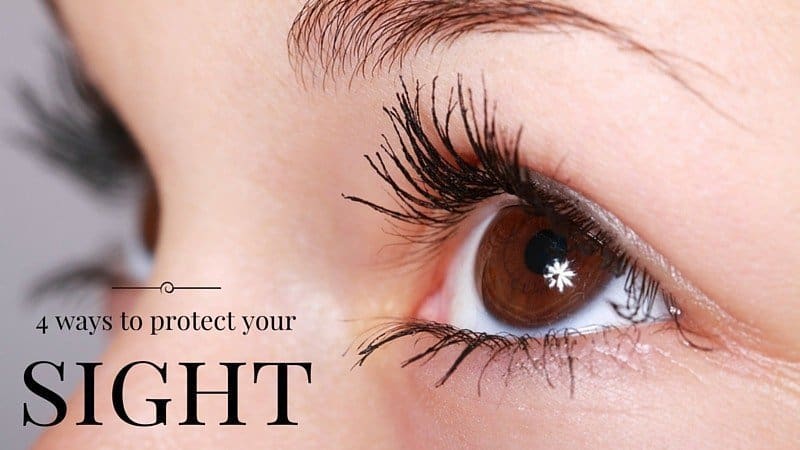You only get one pair of eyes so it’s essential to know how to look after them if you want to keep your vision in good nick for as long as possible. If you have children, it’s also important to pass good eye-care habits on to them. To protect your and your little ones’ peepers, be sure to follow these four simple rules.
4 ways to protect your sight

Go for regular eye tests
You should have your eyes tested by a qualified optician at least once every two years. If your eyes are playing up in between appointments, don’t wait. A lot can change in two years so get them checked as soon as you notice any alterations or problems.
Your children will have had their eyes checked at birth and then at around six weeks old by a health visitor or GP. It’s then up to you to get your children in the habit of going for eye exams so that any problems can be corrected as soon as they are detected.
Use glasses/contacts as directed
If glasses or contact lenses are prescribed, they need to be worn as directed by the optician. If a child needs glasses between birth and eight year of age, it is especially important that they are worn during this time as it is the period when visual development occurs. If you are using contacts, be sure you understand how to fit, remove, store and care for them properly. Advice and information on these topics can be sought from your optician and from contact lens specialists like Feel Good Contacts.

Eat the right foods
In general, eating a balanced diet can help to protect your eye health. Foods containing antioxidants, vitamins C and E, zinc and omega-3 fatty acids are especially good. With this in mind, try to get more spinach, kale, grapefruit, strawberries, sunflower seeds, almonds, turkey, oysters, eggs, salmon and sardines in your family’s diet to help maintain good vision into old age.
Practise good screen habits
More and more of us are using computers for work, school, homework and leisure. As a result, computer vision syndrome (CVS) has become prevalent. CVS is an umbrella term used to describe a range of eye problems caused by computer use. Signs can include blurred vision, eye irritation, headaches and dry eyes. To prevent or relieve symptoms, you should limit screen time where possible and, when using computers, look away from the screen for at least 20 seconds every 20 minutes. You should also alter the brightness, contrast and font size on your computer to suit your vision and keep your computer monitor just below eye level and about 20 to 28 inches away from your face.
So there you have it – four simple tips to keep your eyesight keen for longer. What are your top eye-care tips? Let us know by leaving a comment below.
































No Comments